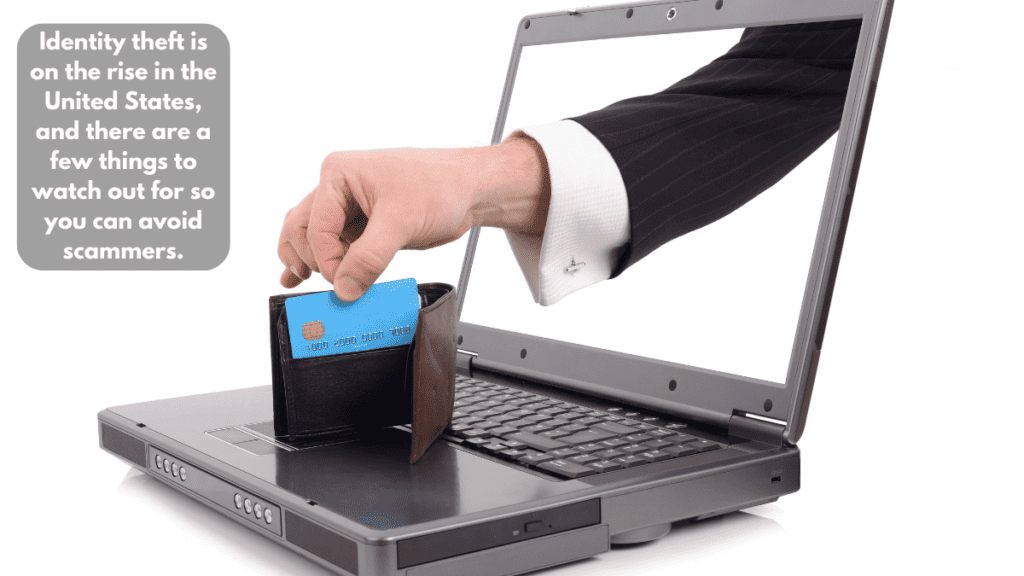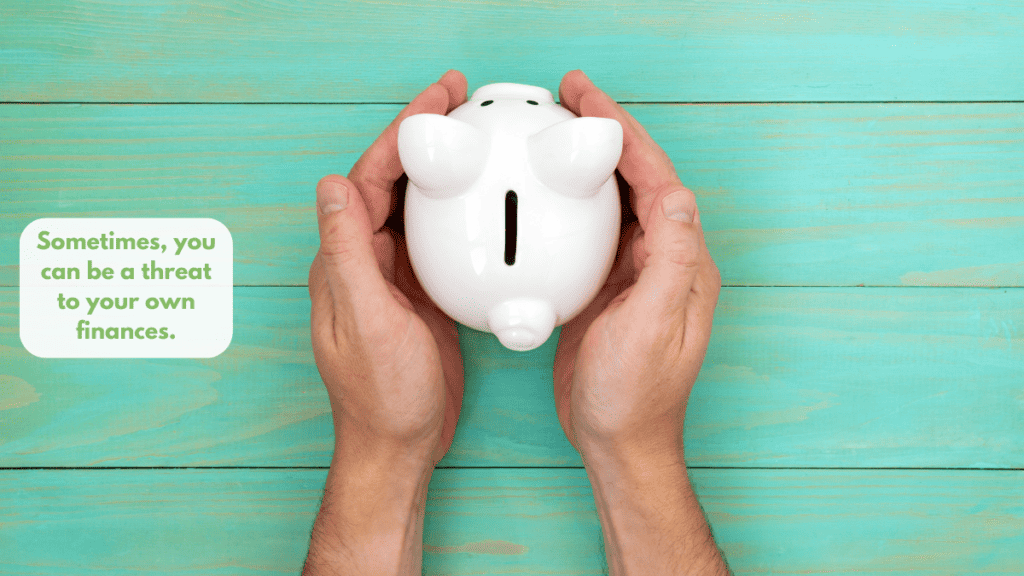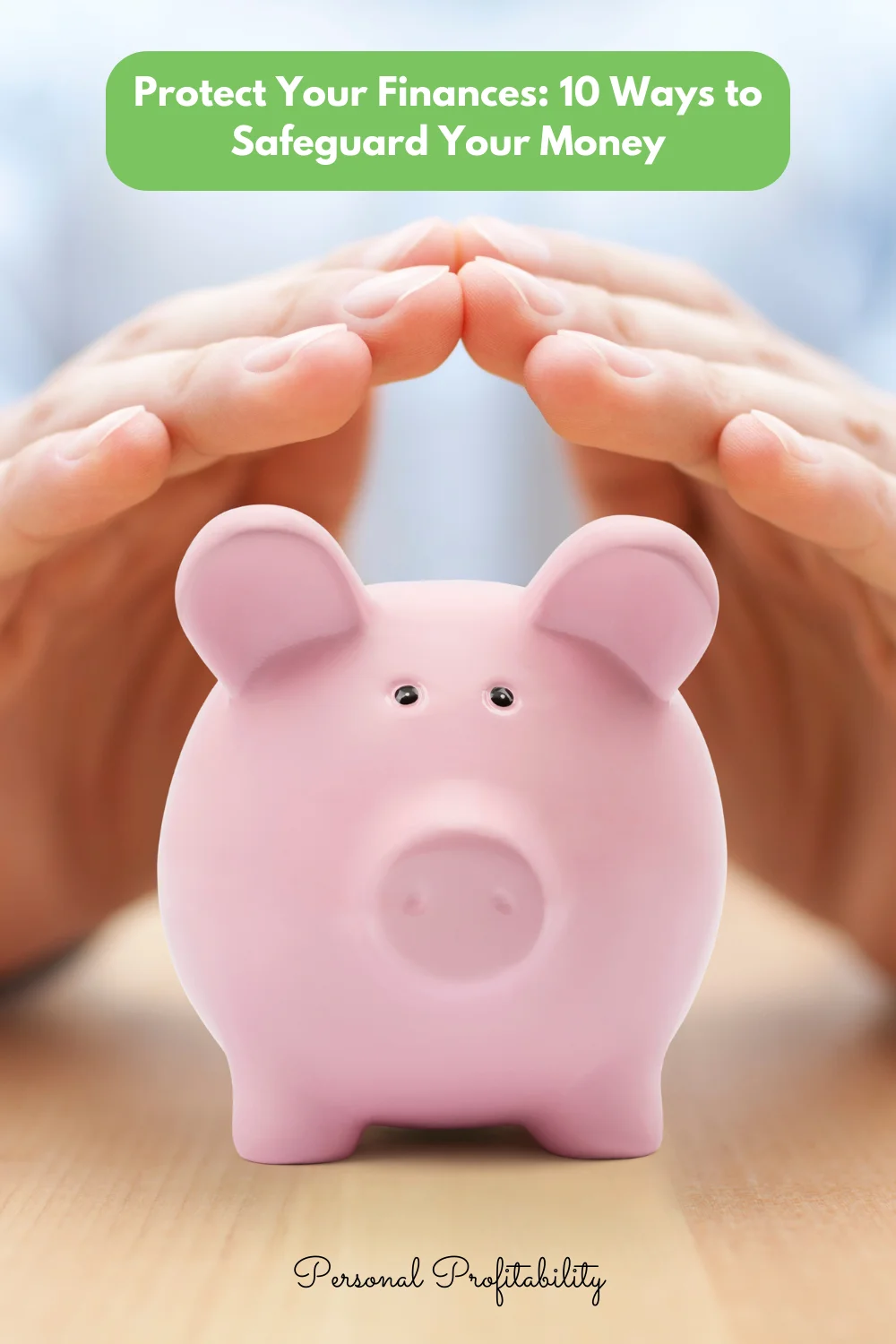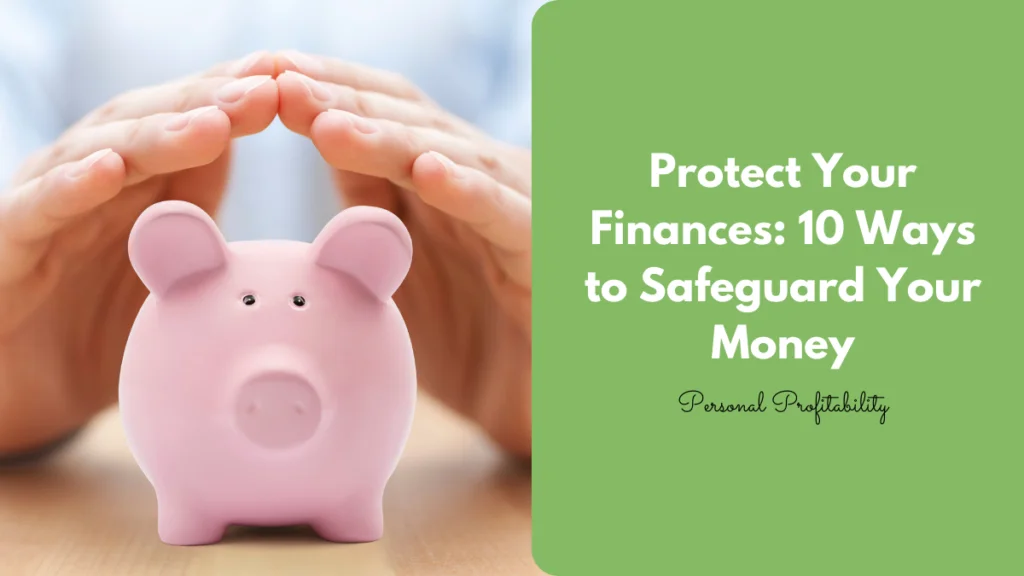If you are trying to improve your financial health and build your wealth, it’s essential to take the time to protect your finances. After all, you don’t want to dig your way out of debt or increase your net worth just to have a scammer benefit from your hard work!
But how can you keep your money safe in a world where data breaches, identity theft, and scams run rampant? Here are some key strategies you can implement today to protect your finances.
- 1. Keep Your Account Info Private
- 2. Beef Up Online Security
- 3. Act Quickly If You Lose a Card
- 4. Don’t Fall for Scammers
- 5. Browse Safely
- 6. Shred Your Documents
- 7. Take Inventory of Your Cards and Accounts
- 8. Protect Yourself From Yourself
- 9. Deal With Data Breaches Quickly
- 10. Know the Differences Between Credit and Debit Card Safety
- The Bottom Line
1. Keep Your Account Info Private
Unless you have a joint account, there is almost no reason for anyone other than you to have your account information. Account numbers, routing numbers, credit card numbers, and other financial account information should be kept private.
In the event that you do have a shared account, keep tabs on it and monitor for suspicious and unexpected activity.
Do not give your account information to someone so they can run an errand for you. Never give your information out because you think someone may need it. Just keep it secure, and you have nothing to worry about.
2. Beef Up Online Security
We’ve all read stories about someone’s ex breaking into their email or Facebook account. Far worse than your buddy finding your computer unlocked and writing profanities on your Facebook wall is giving someone access to your online life.
Want evidence? Just search for breakup horror stories involving Facebook and Gmail online. You will find plenty of stories.
To ensure my accounts are secure, I don’t even know my passwords except for my Google and LastPass accounts. LastPass generates randomized passwords for every site you use. It has a Chrome, Firefox, IE, and Safari plugin that auto-populates your passwords for you.
Just remembering two passwords is easier and will keep you safe. No one will guess or brute force their way into my randomized, 16-character alphanumeric passwords.
3. Act Quickly If You Lose a Card
Once, I went to the ATM at an airport, and when I went to grab my card later that night, I realized it was gone. I don’t know where I lost it, but I did know how to ensure everything was okay.
The first thing to do when you realize your card is gone is cancel it. Canceling your card is free and easy, so don’t delay. If someone stole or found it, they can use it until it is canceled. You could be liable for the charges if you didn’t make an effort to report your lost card immediately.
Over the next few days, make sure to check your charges daily. Some charges do not show up right away, and if the card was used, you can tell the bank to start the fraud process. If you don’t watch for problems, you might end up on the hook for your thief’s purchases.
If the card is canceled and you don’t see any unauthorized charges for three or four days, you are most likely safe and will not see any problems.
Also, if you use your card for any monthly bills, update the merchant with your new card number so you don’t get hit with accidental late fees.

4. Don’t Fall for Scammers
Identity theft is on the rise in the United States, and there are a few things to watch out for so you can avoid scammers.
Keep in mind that no one from your bank will call you to ask for your Social Security number or anything else. They already have all of your information. If your bank or any other financial institution needs to know your private information, they will not call you to ask for it.
No one from any bank will ask for your online login information. They already have it because they are the bank. If anyone asks you for login information besides a bank or trusted financial planning site like Empower, you know they have bad intentions.
Beyond that, you did not win a lottery in the United Kingdom, nor did a dead person in Nigeria leave you a fortune. If someone says that you will get lots of money and only need to wire or send them a smaller amount to get access, they are lying.
5. Browse Safely
When you sign into online banking or any website that deals with your money, make sure your browser says https rather than just http. The s stands for secure and indicates that the site uses Secure Socket Language (SSL) to ensure encrypted transmission across the web.
Anyone can access and steal your information if you don’t have an SSL connection and use public Wi-Fi. A clever hacker can also pick up your info, but SSL keeps you safe.
In addition, do not log in to a secure site with your important information on a public, non-secure wireless network. Keep your banking and shopping to your secure, home wireless network or a wired network you trust.
6. Shred Your Documents
Always shred any mail that has your name and address. Furthermore, shred credit card applications you receive in the mail.
Your name and address are all someone needs to cause you a headache and possibly cost you a lot of money. They can make up the rest of the information.
I have the Royal HG120 12-Sheet Cross-Cut Shredder in my home office and highly recommend it.
7. Take Inventory of Your Cards and Accounts
Make a list of all the cards you carry in your wallet or purse. Keep it somewhere safe so you can cancel your cards immediately if they are ever lost or stolen.
It’s also wise to have a complete, up-to-date inventory of your current financial accounts and review statements for them each month. This way, you can ensure there have been no unauthorized charges or fees.

8. Protect Yourself From Yourself
Sometimes, you can be a threat to your own finances. This can be especially true if you are a big spender, go on frequent shopping sprees, pull out your credit card when you get emotional, or your home is filled with items you rarely use.
If any of those categories apply to you, you can safeguard your finances using a few key strategies. The first is keeping a spending log. This lets you track the money you spend and the places you spend it so that you can tell precisely where you need to cut back.
Next, create a budget to help you to balance your spending with your income. This ensures that you leave room to save money and pay bills. If you’d like some help with your budgeting, there are plenty of sites out there that can help you.
Finally, get some accountability. Tell a friend or a family member you’d like to work on your spending habits. If someone else knows about your goals, they can follow up with you to make sure you are achieving them.
9. Deal With Data Breaches Quickly
In 2022, there were over 1,800 data breaches in the United States. This is when hackers break into a company’s computers and steal customer information.
If you have received word from a place you’ve shopped, your bank, or the media that your data was leaked in a data breach, don’t panic. Everything will be fine.
When fraudulent charges are made on your credit card or debit card, you are not liable for the charges. Your cardholder agreement protects you from fraud. The merchant and your bank share some liability for the fraud. In most cases, the bank will cover the fraudulent charges.
However, you should still act immediately to protect your money. Contact your bank to request new cards, and check your statements to ensure there are no unauthorized charges. If there are, report them immediately.
10. Know the Differences Between Credit and Debit Card Safety
When it comes to credit cards, I’m never worried about fraud because my personal assets are protected with a credit card. If you ever see fraud on your credit card account, notify the bank immediately. They will remove the charges from your account.
In the event your debit card information is stolen, that is a whole different story. It is essential that you demand a new account number right away, even if the bank does not offer one.
If someone gets ahold of your debit card number, they can drain all the funds from your bank account. While you will get the money back after filing a fraud claim, it can take weeks or months before you get your money back.
This is one of the reasons I encourage people to use credit cards for all purchases.
The Bottom Line
It doesn’t take much time or effort to protect your finances. By following these easy steps, you can ensure your money is safe as you work to improve your financial health.
Don’t let all your hard work to grow your wealth go to waste. Take the steps needed to safeguard your finances today!


